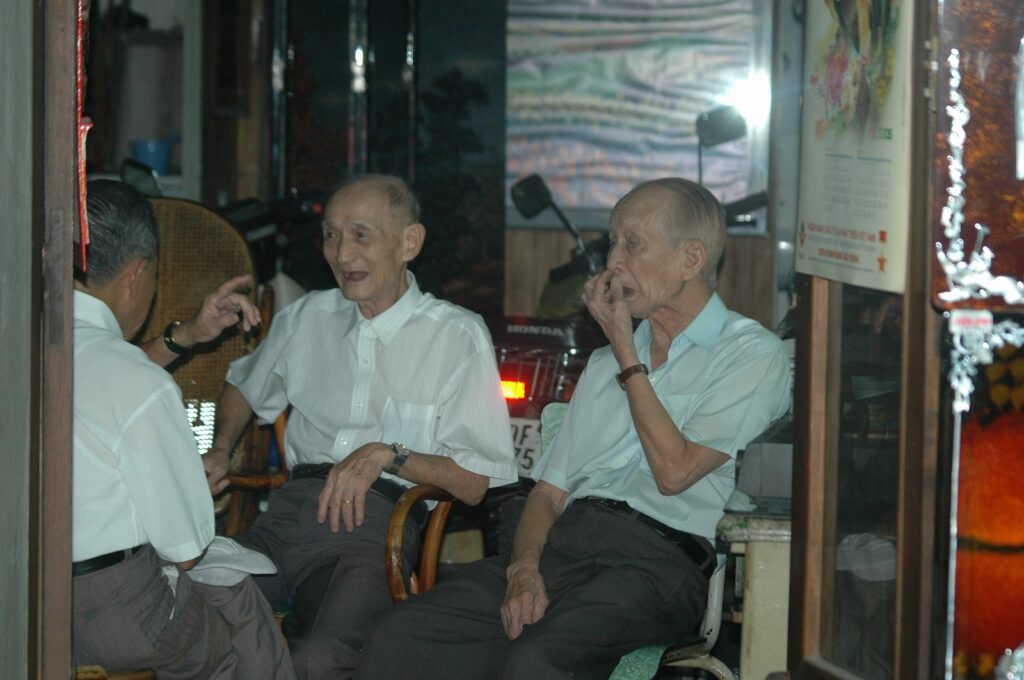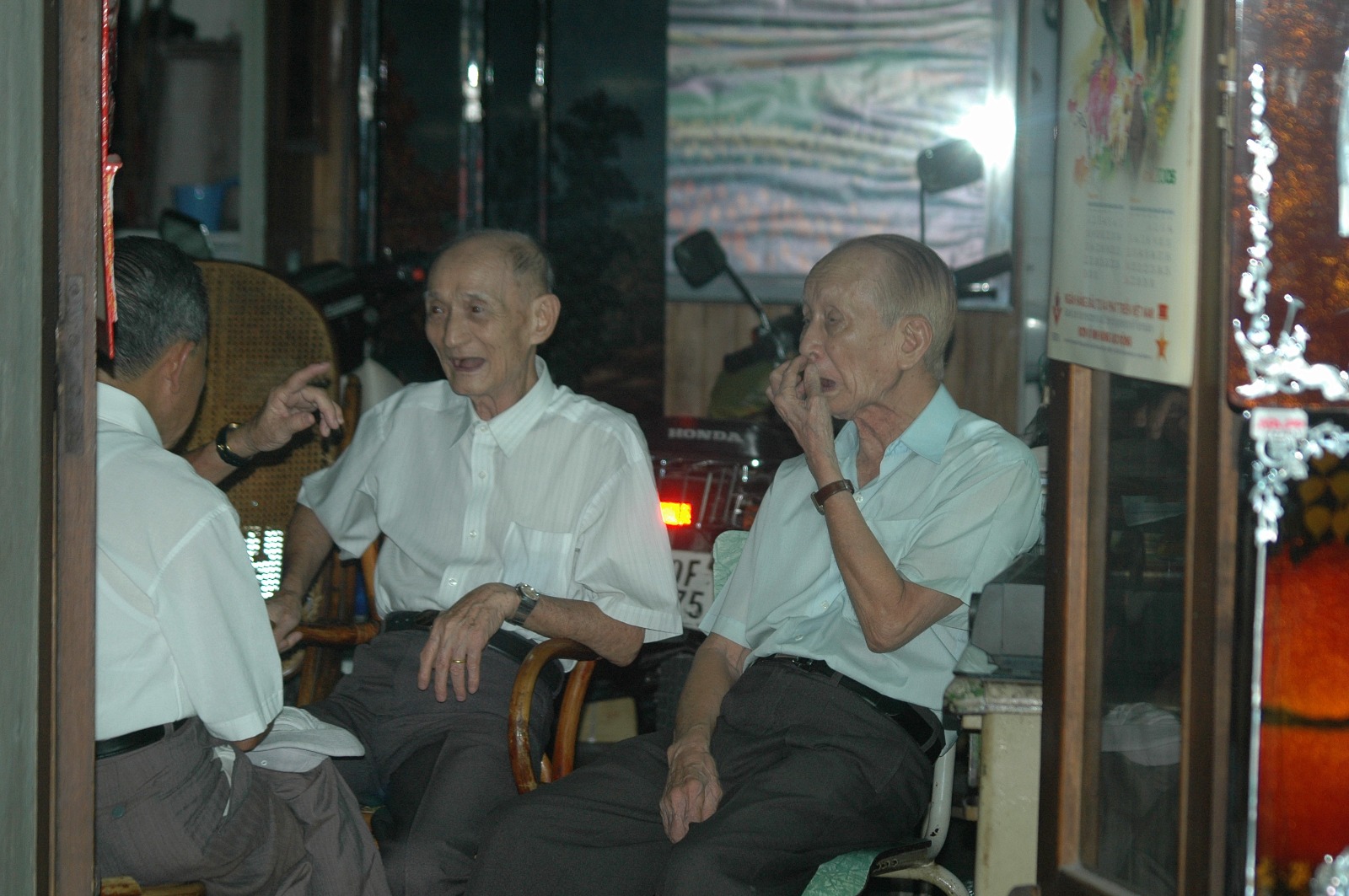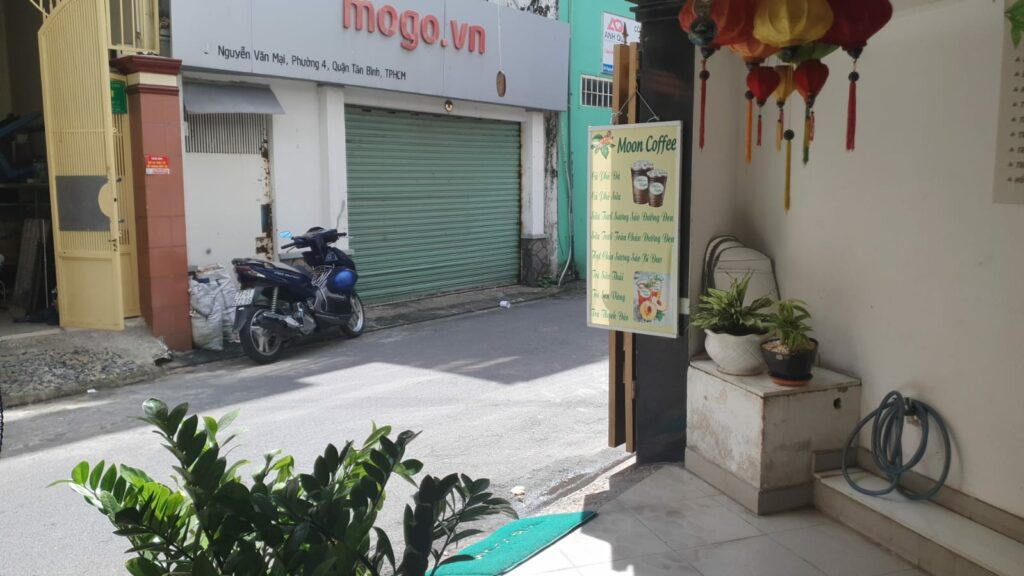Doing anthropological research is starting with thinking on what to do and how to do it. Anthropologists are most of all explorers in the unknown. They went into the jungle and visited civilizations unknown to us with an (finally sometimes) open mind, learned to speak the language and while staying with the people developed theories of what was going on. Going into the wild with our own image of the world makes us blind to see what is there, in the moment that you are there.
A sociological approach is finding out what is the status quo of what is happening in the moment of research. Sociologists do interviews and make questionaries. And then they have an image or a photo of that social moment. As anthropologist you also make that photo but more intuitive. It is more open for discussion and aware of the fact that nobody will ever speak the truth, people love to hide their problems and exaggerate their good sides. In my talking’s with people from Vietnam I learned for instant that people living on the street don’t exist. I guess the people I saw on the street and in the slums, are probably only seen by me and not her.
So that will be my approach, I was reading about being elderly in Vietnam, but I stopped reading because it felt, like in every country as propaganda: Look how good we are. And most scientific surveys I read where based on questionnaires not done by the writers. Most of them give the feeling of not being descriptive but written for a purpose, like a government that needs to legitimize their policy.
I started to read the fables and legends of Vietnam to understand some of the social structure. In my opinion, children are raised in every culture with these mostly honeysweet stories that always end well and always have a message about how to behave.
This is a popular one. https://phongchongthientai.mard.gov.vn/en/Pages/the-legend-of-son-tinh-and-thuy-tinh-mountain-god-and-water-god-.aspx
After reading It you can follow my deconstruction of what I may find as a reality in Vietnam. Most Vietnamese are raised with these stories.
In terms of gender, it is a patriarchal society. The father (a man) holds the power of definition and the power of decision. Power of definition means that his idea of the world is unchallenged. He sees his daughter as beautiful and as kind, he finds nobody suitable, and he is the one that defines the characters of the two men that want to marry his daughter.
In terms of power of acting, he decides she has to marry, he is the one who decides by whom and he is giving a man a task. Very remarkable I found that the first who fulfilled the task also won. The other one that also fulfilled was not even considered because he was later. So being in time, or even the first is important.
The woman in this story, only possess certain qualities. She is beautiful and kind. And this is not enough, to possess these qualities, she is even in competition because she won the contest: she is unsurpassed. She does not have the power of definition; she doesn’t even speak. And she does not have the power of acting. She has to obey the rules and is marries to the God of the mountains.
We learn a lot of good qualities and questionable qualities. The qualities of the winner of the contest for the hand of the princess are being powerful, handsome, quiet, and gentle, the other one (who lost) had a fiery temper. He promised his future wife power and wealth, while the first promised happiness and everlasting life.
I will see if I can recognize this in the behavior I will see in Vietnam. I am curious. I will talk to people through a guide, walk around in neighborhoods and see what I can see or not.
I will go back several times to Vietnam. My way of research is not perfect. In a way I stumbled on realities no-one will ever see and at the same time one day during a journey through India, I passed the Taj Mahal by one kilometer only finding this out two day later.
Going and starting to see, and going back gives opportunity to reflect and learn. When I m back in September I invite everybody to discuss what they picked up from my wanderings. I am also aware of the division of the city and the rural aereas. I learned this from my research in Cambodja, of which I also made a documentary.
I will do it differently though. There I designed four questions that I asked all the participants. I find this to structured now. A question is also full of premises and the interaction is also based on how both me the interviewer and interviewee understand the words used. The most I learned from observing, feeling and intuition and then later on check what I saw, felt heard, smelt etc. this I will do now also. I observe, film, make fotos, collect sound and later on ask wither my assumptions are correct according to the people I sk of course. I still remember that one of my Vietnamese friends told me that there are no Streat people in Saigon (and almost no prostitution). I showed her my photos of both and she only replied with: “who send you these photos?” and was silent after I said I made them.
The question of becoming elderly is social. For me, what we call elderly is a young person that looks like elderly. If you think you are one, you will be one. There are except some external signifiers no reasons to belief that they are a distinguished group within society. It is what we call a social construct.
I did in dept research into the phenomena of elderly sofar in Cambodja, Brasil, Bolivia, Japan, The Netherlands, and Bangladesh. With the research comes the experiences. Of course the countries are in a wat one. People share the same language and laws, but internal devided as possible in human relations. The classes differ from very rich to very poor, from rural to city, form different origin and native and import to descended form slaves and conquerers. Realities that make a difference. Can you believe for instance that in Brasil the Dutch conquerors are still seen as the good ones while the Portuguese are still blamed for everything that goes wrong in Brasil.


